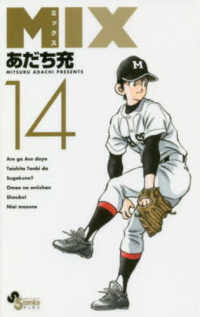- ホーム
- > 洋書
- > 英文書
- > Literary Criticism
Full Description
Oscar Wilde and Nihilism examines Wilde's major works in the context of nineteenth-century philosophical nihilism and the Victorian religious unsettlement. The book covers Wilde's plays, the fairy tales, The Picture of Dorian Gray, the critical writings, and De Profundis to show how Wilde's thinking about nihilism developed over the course of his career, profoundly influencing the tone and message of his work. Like Nietzsche, Wilde came to regard art as the only effective counterforce to the problem of nihilism, a uniquely consistent source of order and meaning in a godless universe. The book is intended for the general reader with an interest in nihilism, aesthetics, or Wilde, as well as for more specialist scholars. The aim is to provide the reader with the answers of an exceptionally brilliant and original intellect to the most compelling problem in philosophy: how to find meaning and purpose in life.
Contents
Introduction
Part I: A Definition of Nothing
Part II: Nihilism in the Nineteenth Century
Part III: The Artistic Counterforce and the Problem of Modernity
Chapter I: Vera, or the Nihilists: The first Wildean Superman
Chapter II: Not for Children: The Development of Nihilism in the Fairy Tales
of Oscar Wilde
Chapter III: A poisonous book: Nihilism as Sickness and Art as the Cure in
The Picture of Dorian Gray
Chapter IV: No law for anybody: Nihilism as Anarchy in The Soul of Man
and the Social Comedies
Chapter V: The most supreme of individualists: Christ and the Conquest of
Nihilism in De Profundis
Conclusion: French by Sympathy: Gide and Proust as the Aesthetic Heirs of Wilde








